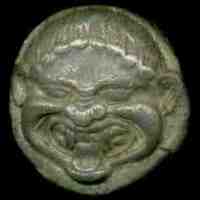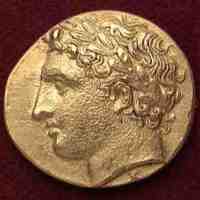
permission to use image granted

image courtesy of Edgar L. Owen, #3803
CLA 361
Syllabus Spring 2016


CLA 361
Syllabus Spring 2016
Dr. Victor A. Leuci
Aeschylus. Aeschylus II: Oresteia (Agamemnon, The Libation Bearers, The Eumenides). 3rd edit. Ed. David Grene, Richmond Lattimore, Mark Griffith, Glenn W. Most. Chicago: University of Chicago Press. 2013. Print
Aristophanes. The Complete Plays. Transl. P. Roche. New York: New American Library. 2005. Print.
Euripides. Euripides I: Four Tragedies. 3rd edit. Ed. Mark Griffith, Glenn W. Most, David Grene, Richmond Lattimore. Chicago: University of Chicago Press. 2013. Print
Plautus. Four Comedies. (Oxford World's Classics) Transl. E. Segal. New York: Oxford University Press. 2008. Print.
Seneca. Six Tragedies (Oxford World's Classics). Transl. Emily Wilson. New York: Oxford University Press. 2010. Print.
Sophocles. Sophocles I: Three Tragedies. 3rd edit. Ed. Mark Griffith, Glenn W. Most, David Grene, Richmond Lattimore. Chicago: University of Chicago Press. 2013. Print
B. Malina, The New Testament World: Insights from Cultural Anthropology.
W. Burkert, Greek Religion.
G. Holst-Warhaft, Dangerous Voices: Women's Laments and Greek Literature.
E. R. Dodds, introduction to his translation of Euripides' Bacchae.
M. H. Hansen, The Athenian Democracy in the Age of Demosthenes.
The course is a survey of ancient Greek (and Roman) drama--tragedy and comedy. Through an examination of these plays and select scholarship we will
Different types of writing will be part of the course: critical summaries, research papers, a mid-term, and a final. All papers/critical summaries will be assigned as a means to help participants come to a better understanding, evaluation, and integration of important themes, ideas, and concepts. The critical review and the research paper will be revised on the basis of a conference with me. Either the critical review or the research paper must be revised on the basis of a conference with a tutor at the Writing Lab. A critique and conference after the completion of a writing assignment may also occur. In general, participants in the class should highly consider using the services of the Writing Lab and especially the Lab tutors, who can be of tremendous assistance.
Note: when turning in the final copy of a paper, the draft with comments by me and/or the writing lab tutor must be turned in at the same time -- it goes without saying that the "suggestions" noted on the draft must be incorporated in the final version of the paper for it to count as revised.
The course will consist of discussion, student presentations and some lectures. The class may occasionally be divided into small groups to treat discussion topics that will most often be based on readings.
Research Paper: 200 points; 3000-6000 words in length.
Outline & Bibliography: for Research Paper: 25 points.
Mid-term and Final: 50 points each; 1200-1800 words in length (the lowest score will be dropped; or one may count both and reduce the worth of the research paper to 150 pts).
Critical Review: 25 points; 600-900 words in length.
Presentation: 50 points; based on the research paper to be presented the last several weeks of the semester.
Class Participation: 50 points; may also include posts in class discussion folder (if there are any).
All students and faculty must adhere to the Honor Code; please see the Student Life Handbook for the full description of the Honor Code--p. 21 in the Student Life Handbook gives a short definition:
"No Westminster student shall commit any act of academic dishonesty in order to advance her or his own academic performance, or to impede or advance the academic progress of others,"
but the sections on plagiarism and cheating are especially important (see Honor Commission Constitution, Article IX).
check pdf in Moodle or the Student Life Handbook for the following: ADA/Equal Access Policy, Policy on Harassment and Discrimination, College Duty, Emergency Procedures.
Content: The critical review should be a "critical" review, i.e. it should review the key points and present some of the key evidence of the material as well as provide a critique of the material. The mid-term and final are both take-home "exams"—you will be given the topics to choose from about one week before they are due. They should have good examples from our class resources with appropriate in-text citations. The research paper(s) should make appropriate use of primary and secondary evidence to address the topic chosen.
Formatting::
Submission:: A paper copy is due at the beginning of the class period (failure to turn in a paper copy will result in a two letter grade deduction for that paper unless there are extenuating circumstances). An electronic copy of each paper is also required and should be submitted within 24 hours of the due date for the paper copy; note that there is a four letter grade deduction for failure to submit an electronic copy. The research paper will also be turned in to a turnitin drop box in Moodle.
Regular attendance and participation are essential for the success of the whole class. More than two unexcused absences will be considered excessive, and no make-up work will be accepted for unexcused absences. Each unexcused absence past two will result in a deduction of 6 points from the total number of points one has at the end of the semester. If you are ill, e-mail me before class, if possible, or as soon as you are able.
The assignments at the link on the menu bar are not "set-in-stone," and may vary depending on how each class period goes. The syllabus will be updated as needed.
Reading Assignments from:
Reading Assignments from:
Reading Assignments from:
Reading Assignments up to presenters